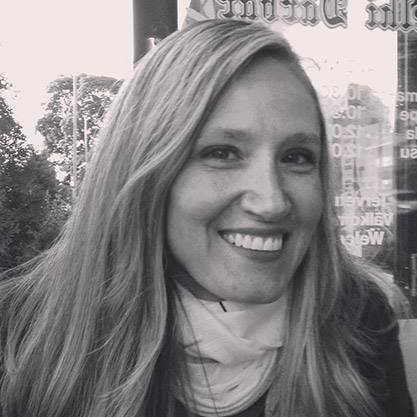Libraries, Instagram and the future of social media
First there was the telephone, then there was the fax. Then came cellphones, text messages and bitmojis.
Along the way, social media revolutionized the way we communicate, and today it's the very heart of global communication. (You probably saw this story on Facebook, didn't you?)
Nine years ago, Mashable launched the first annual Social Media Day as a way to recognize and celebrate social media's impact on global communication. To mark its anniversary, we decided to talk with a librarian who's also a social media professional.
Sarah Bowman is an adult-services librarian at the Baldwin Public Library in Birmingham, Michigan, and this fall she'll be teaching a new special topics class (INF 7850 CRN 18104) for Wayne State's School of Information Sciences: "Likes, Follows & Friends: Understanding Social Media Use for Nonprofits."
We sat down with Bowman this year for #SMDay to get her insights into how librarians handle social media in the modern era.

SIS: So how does social media factor into your work?
Bowman: When I first started this job as an adult-services librarian, one of my duties was to help develop our social-media presence, specifically on Instagram. I didn't really know what I was getting into, but it's turned out to be one of the more rewarding perks of my job in ways that I didn't necessarily expect.
I enjoy social media for personal use for all the regular reasons everybody else does - pictures of babies and cats. In my professional life, I thought I would be connecting with our patrons and our community, and we do, but what was surprising to me is how much library-to-library networking is happening on social media.
Often we'll end up with more of a dialogue, and we've created real relationships with libraries from all over the place, just through sharing ideas and feedback about what works and what doesn't work.
SIS: How do you use social media to connect with your patrons?
Bowman: We have people who follow us who live in Birmingham and regularly come to the library, and we have people who grew up in Birmingham who might comment on an old photo: "I remember that as a kid in the '60s! I haven't been there in 20 years - thanks for the pictures!" It's great to be able to share those pictures and memories because a lot of people have warm, fuzzy feelings about libraries.
SIS: What unique challenges does your job present?
Bowman: Social media - and Instagram, specifically, but also to a certain extent Facebook - is image-driven. In the world of librarianship, the message that we're trying to get across can often be wordy and text-based. It's a fun, but challenging creative process for me. Like, here's a message I want to get across, but how do I do it visually? Let's say I want to promote my large-print book collection - how do I do that in a way that's visually appealing, that people might stop and look at or like and comment on? That's the part I love about Instagram and that I find challenging.
SIS: What advantages does Facebook have over Instagram?
Bowman: What works well for us is posting our library programs as Facebook events. There are a lot of families that exclusively use Facebook to search for activities for their kids. Having those show up as a location is a good advertising mode for some of our programs.
SIS: What role do you think social media will play for future graduates of library-science programs?
Bowman: Most of our peer libraries around here - Berkley, Troy, Royal Oak - their social media is run by librarians or library staff. It's not run by marketing professionals. For new graduates in our field, I expect that social media will be part of their daily job duties.
SIS: What can students expect from your class next fall?
Bowman: I'd like to give students a theoretical, big-picture understanding of social media, but I also want them to feel prepared practically to know what it might look like to have to incorporate this duty as part of their jobs.
Follow the Baldwin Public Library on Instagram, Facebook and Twitter @BaldwinLib. For more info, go to baldwinlib.org.